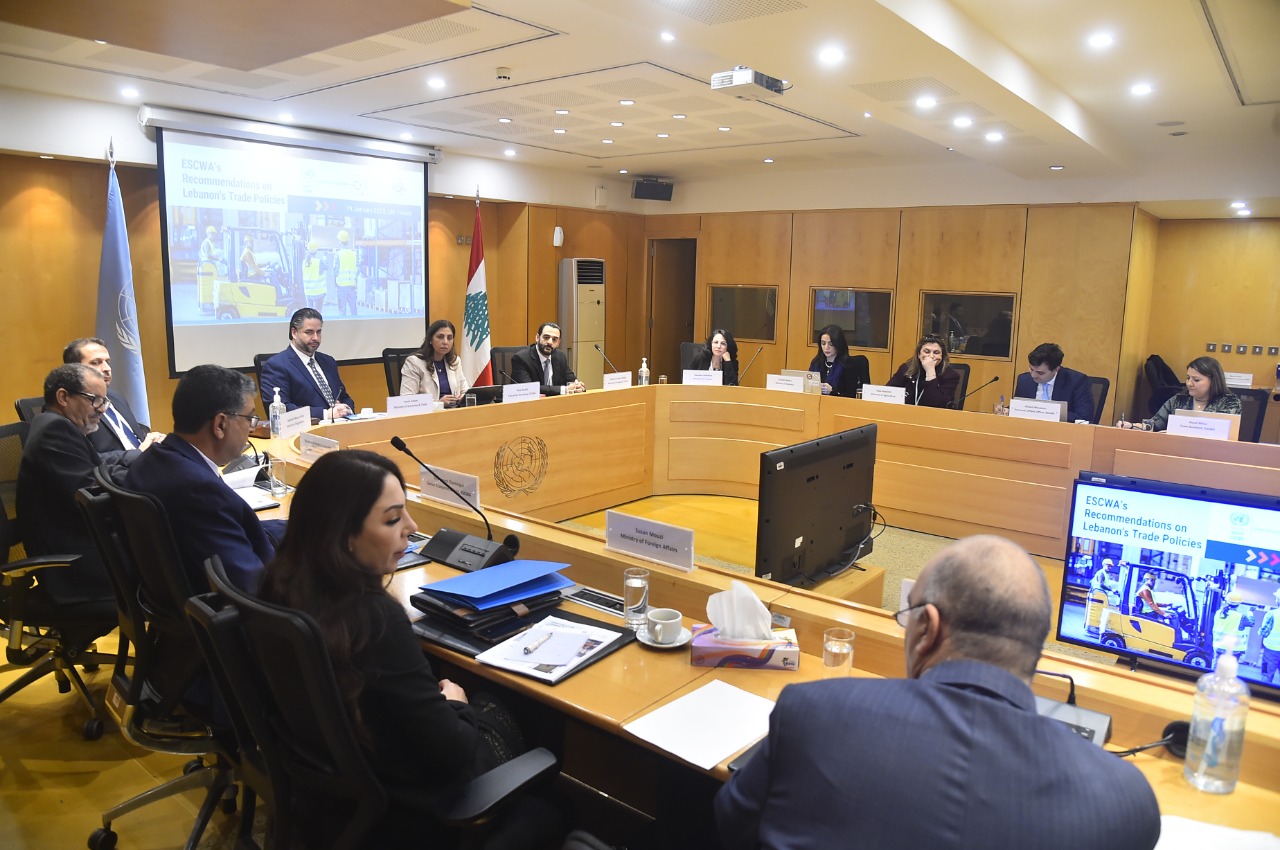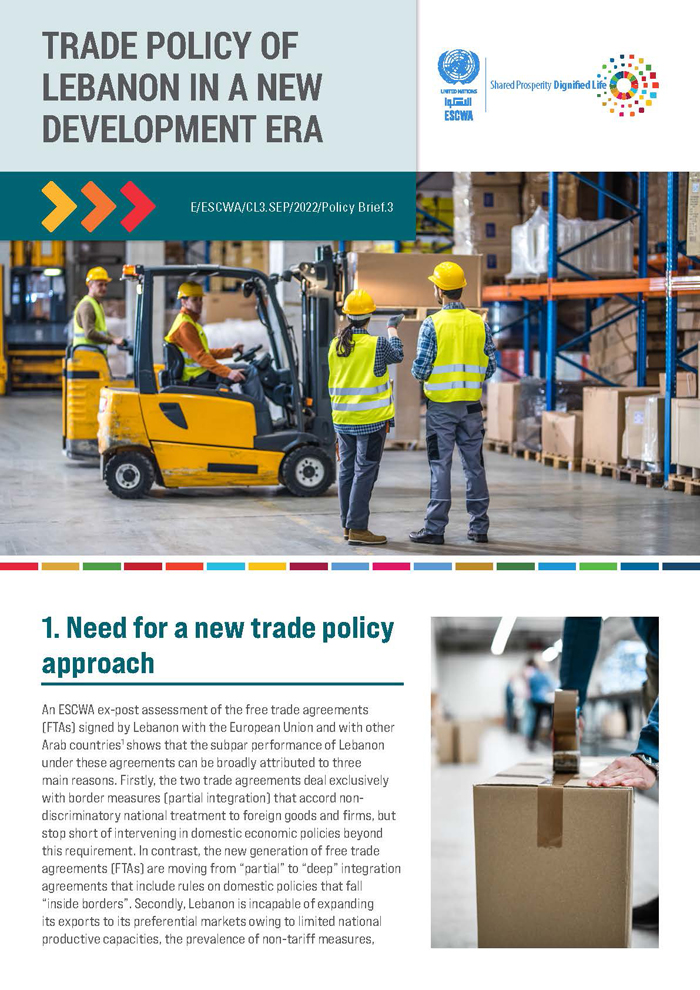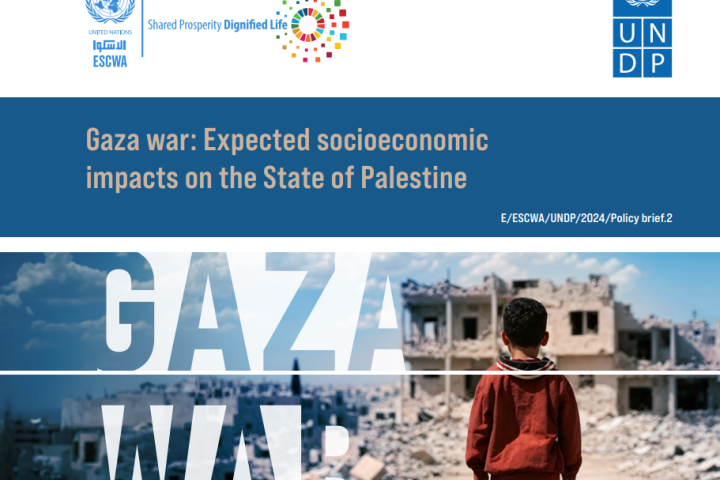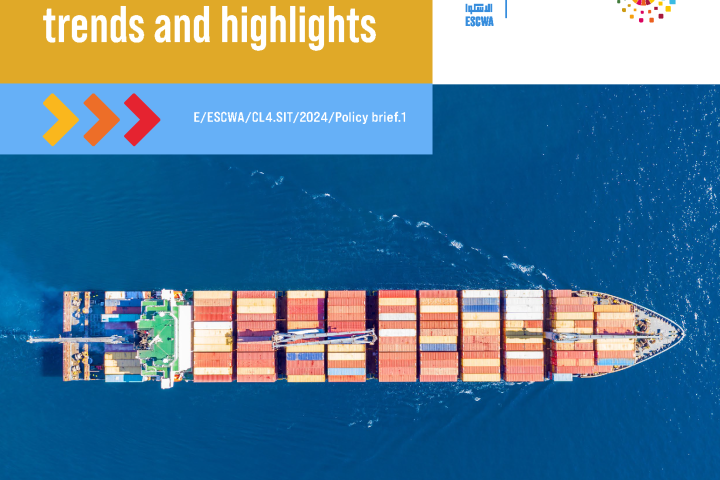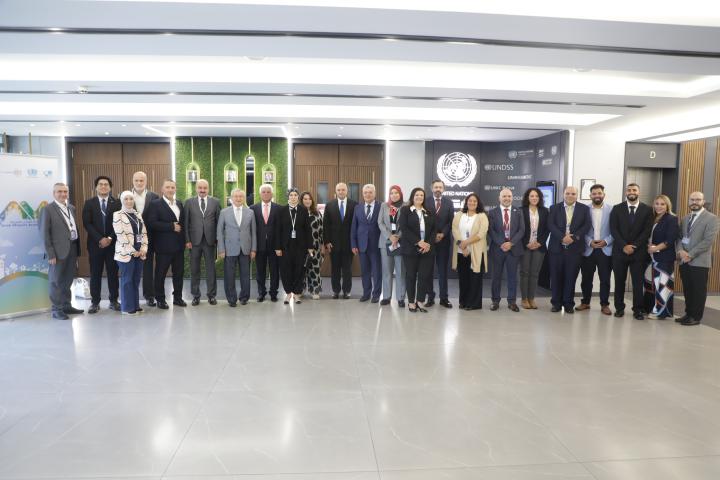Beirut, 20 January 2023--Over the past two decades, the Lebanese trade deficit exceeded $250 billion. In the same context, the country showed a subpar performance in the two free trade agreements signed by Lebanon with the European Union and other Arab countries. These are some of the findings of a new policy brief prepared by the United Nations Economic and Social Commission for Western Asia (ESCWA) entitled “Trade Policy of Lebanon in a New Development Era”, in support of the Lebanese Ministry of Economy and Trade.
To discuss the findings of this policy brief, ESCWA organized a high-level panel discussion at the United Nations House in Beirut. The brief is based on four technical papers prepared by ESCWA; it reviews the root causes of the trade deficit in Lebanon, proposes guidelines for reforming tariff structures, and presents policy options on required reforms and ways to implement them.
In his opening remarks, Lebanese Minister of Economy and Trade Amin Salam commended the continuous support provided by ESCWA to the Ministry, while stressing the importance of cooperation between governmental institutions and the United Nations, and the international community to accelerate economic reforms, including trade policies. “Trade policy has become one of the most important economic tools to confront crises and push for reforms,” he noted.
The brief indicates that the increasing and long-term trend of importing luxury goods to Lebanon requires a revision of the taxation policy to reduce trade imbalances, resulting from the import of such goods on the trade balance. In parallel, domestic reforms should be implemented to improve the economy’s competitiveness through a long-term inclusive transformation strategy, before engaging in trade liberalization. In doing so, the accession process to the World Trade Organization can be postponed and new free trade agreements can be concluded until a coherent and modern trade policy is developed.
The brief also highlights the importance of utilizing preventive measures available to deal with the increasing flows.
In turn, ESCWA Executive Secretary Rola Dashti stressed the need to seriously reflect on policies that are appropriate to the existing situation, and to shift Lebanon import-dependent economy to a diversified and competitive one capable of exporting and attracting foreign capital. “Despite our different opinions, we all agree that the time has come to tap on new ideas and visions for the wellbeing of Lebanese citizens,” she added.
The brief also highlighted that the agricultural sector still needs protection and a new policy that ensures the stability of the food supply system, steady revenues for farmers, and acceptable levels of consumer prices.
***
About ESCWA
One of five United Nations regional commissions, ESCWA supports inclusive and sustainable economic and social development in Arab States, and works on enhancing regional integration.
For more information:
- Ms. Maryam Sleiman, Public Information Assistant, +961-81-769-888; email: sleiman2@un.org
- Ms. Rania Harb, Public Information Assistant, +961-70-008-879; email: harb1@un.org
